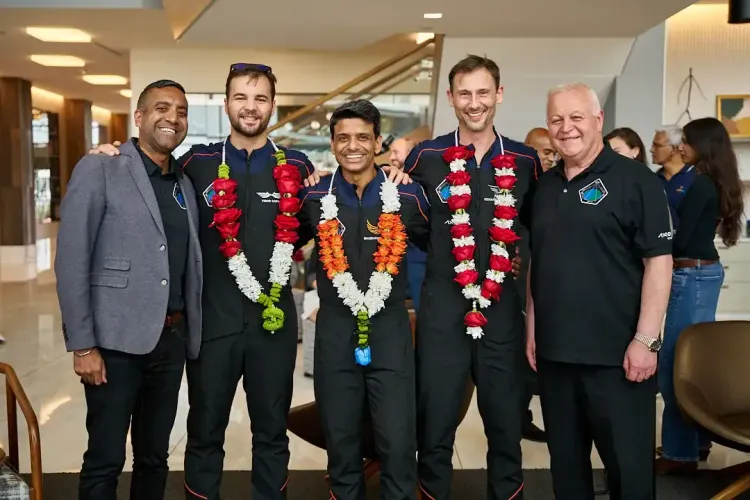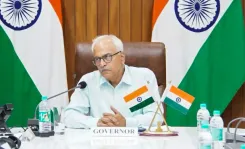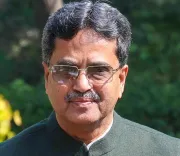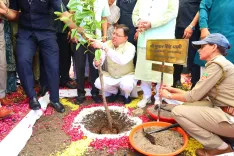How Did Axiom Space Celebrate the Arrival of the Ax4 Mission?

Synopsis
Key Takeaways
- Axiom Space celebrates the return of the Ax4 mission.
- Shubhanshu Shukla becomes the first Indian to visit the ISS.
- The mission highlights collaboration among NASA, SpaceX, and ISRO.
- Shukla conducted significant experiments on space nutrition.
- This mission paves the way for India's Gaganyaan program.
Washington, July 16 (NationPress) The private American firm Axiom Space announced on Wednesday that it marked the successful return of the Ax4 mission back to Texas.
“Yesterday, the leadership team at Axiom Space commemorated the arrival of #Ax4 in Texas,” the company shared on X.
This 20-day expedition, orchestrated by Axiom Space in partnership with NASA, SpaceX, and various governmental space organizations, including ISRO, launched toward the ISS on June 26.
Shubhanshu Shukla made history as the first Indian to visit the International Space Station (ISS).
On Tuesday, Shukla returned to Earth with fellow astronauts from the US, Poland, and Hungary aboard SpaceX’s Dragon spacecraft named “Grace”.
Originally from Lucknow, Shukla participated in the astronaut selection process initiated by ISRO in 2019, following Prime Minister Narendra Modi’s announcement in 2018 from the Red Fort about sending an Indian to space soon.
In January 2025, the 39-year-old astronaut was appointed as the pilot for the Ax-4 mission, a collaborative effort between NASA and ISRO.
He became the youngest astronaut-designate under India's Gaganyaan mission, the country’s first human spaceflight initiative.
In a March interview with IANS, Shukla expressed his aspiration to use his “journey to inspire the entire generation to chase careers in space,” citing his own inspiration from Rakesh Sharma.
During the Ax-4 mission, Shukla held the position of pilot alongside Commander Peggy Whitson from the US.
While aboard the ISS, Shukla executed seven groundbreaking experiments focused on food and space nutrition, contributing to the understanding of sustainable life-support systems, a vital element for future long-term space travel.
Shukla's mission stands as a beacon of inspiration for billions of Indians and represents a significant milestone for India's Gaganyaan human spaceflight program, anticipated for 2027.









